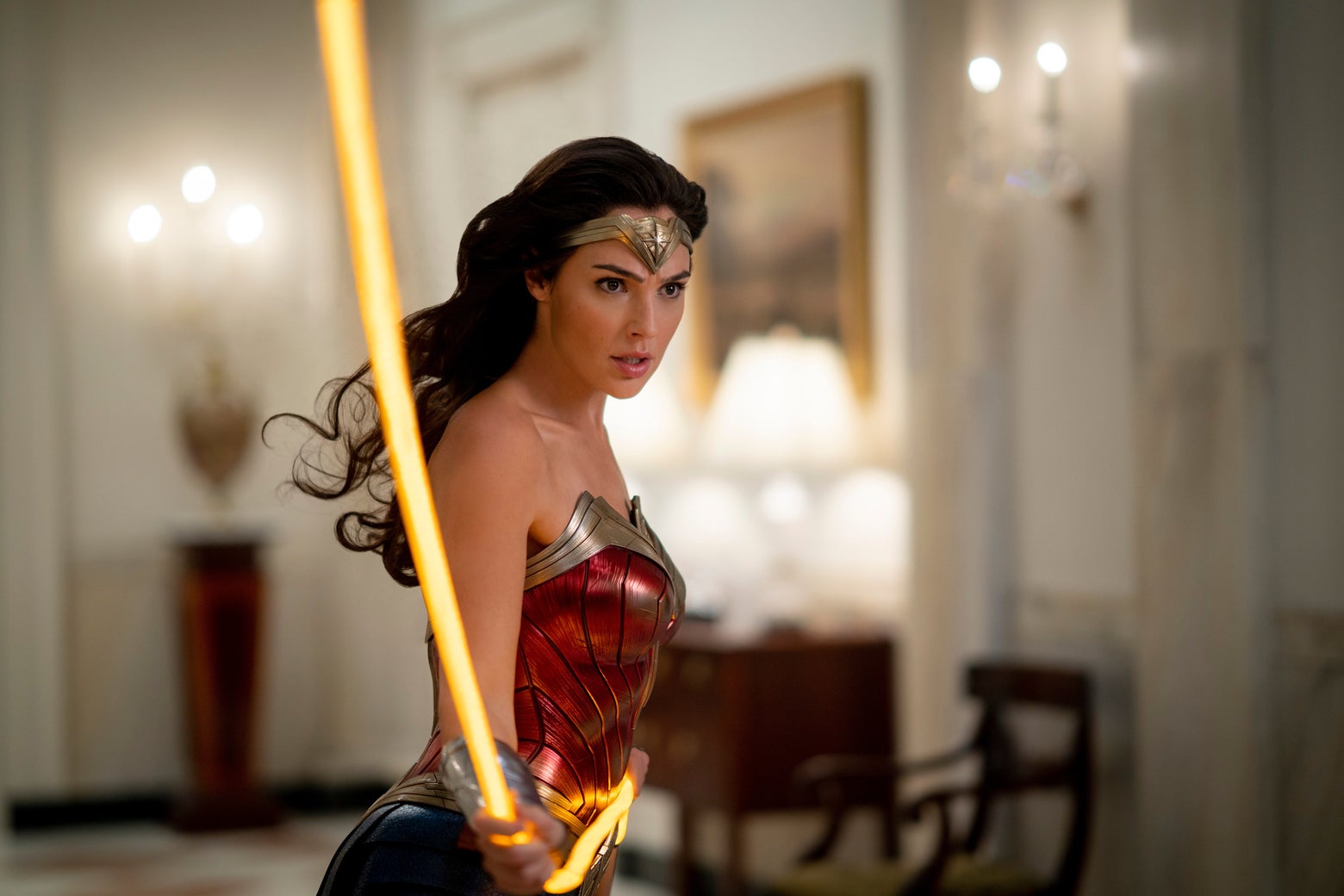Slate gives it a good review:
The chemistry between Pine and Gadot is the secret sauce of the Wonder Woman franchise. It’s not just sexual chemistry; though they’re clearly attracted to each other (which, can you blame them?), Diana and Steve are also convincing as soulmates. Their trans-historical passion never feels like a screenwriter’s contrivance—in part due to the sparks the actors generate and in part to the emotionally intelligent script by Jenkins, Geoff Johns, and David Callaham.
I don’t think I need even a good superhero movie to be 2½ hours long, but it’s worth noting that what makes for this movie’s long running time is not collapsing buildings or exploding spaceships but conversations between people. When Diana and Barbara go to dinner early in the film and get to know each other, there’s a 10-minute scene that’s essentially just them sharing their relationship woes over a glass of wine—not an amenity that generally comes with comic book blockbusters. And some fish-out-of-water comedy moments involving the struggles of a WWI-era pilot to comprehend mid-’80s culture and fashion could have been stretched out longer as far as I’m concerned. As a late-entering character, Steve Trevor doesn’t get quite enough time on-screen, at least for the Pine-piners among us, but that’s better than overstaying his welcome, I guess.
. . .
Jenkins and Gadot have gone and done it: They’ve gotten me invested in the emotional well-being of a franchise superhero.
I agree with her about the emotional truth of the movie. The characters’ decisions and feelings never feel false–Diana and Steve’s love, Barbara’s envy, Maxwell Lord’s emotional need for “success,” whatever that might be. And that’s the majority of what carried me through the movie, the bouyancy and exhilaration of the emotional truths.
Gal Gadot as Diana, Chris Pine as Steve, Pedro Pascal as Max Lord–none of them feel like they are just saying lines because they’re in the script. Their words seem to come from their hearts.
And as someone pointed out above, the battle was won when Diana persuaded Maxwell Lord to stop what he was doing. She didn’t overpower him with light beams or whatever. That was so refreshing.
I’m thinking back to how boring I found the interminable final battle of Endgame, and how fresh and light and uplifting I foudn this ending. Yep, this is the kind of superhero movie I want. It’s not the best one ever made. It’s not the best one I’ve seen, but it’s a good one in my book.
And then Slate follows up wondering about the negative response:
I hopped offline for the holiday and got back on the day after Christmas to see that the pop-culture trifle I’d congratulated myself for unironically enjoying was the subject of equally unironic loathing from large swaths of the critical and popular audience. WW84 wasn’t just the disappointing second chapter in a big-budget franchise helmed by a promising female director; it was the repudiation of everything the first movie had stood for, an insult to its viewers’ intelligence, and an abomination unto the Lord. (I’m condensing a lot of tweets here. People seemed very upset about Wonder Woman 1984 , is my point.)
…
I’ve seen plenty of comic book movies worse than Wonder Woman 1984 open in theaters, get a mixed response from reviewers and a predictably rapturous reception from superfans, and still persist at or near the top of the box office for weeks while the rest of us figured out what we thought.



